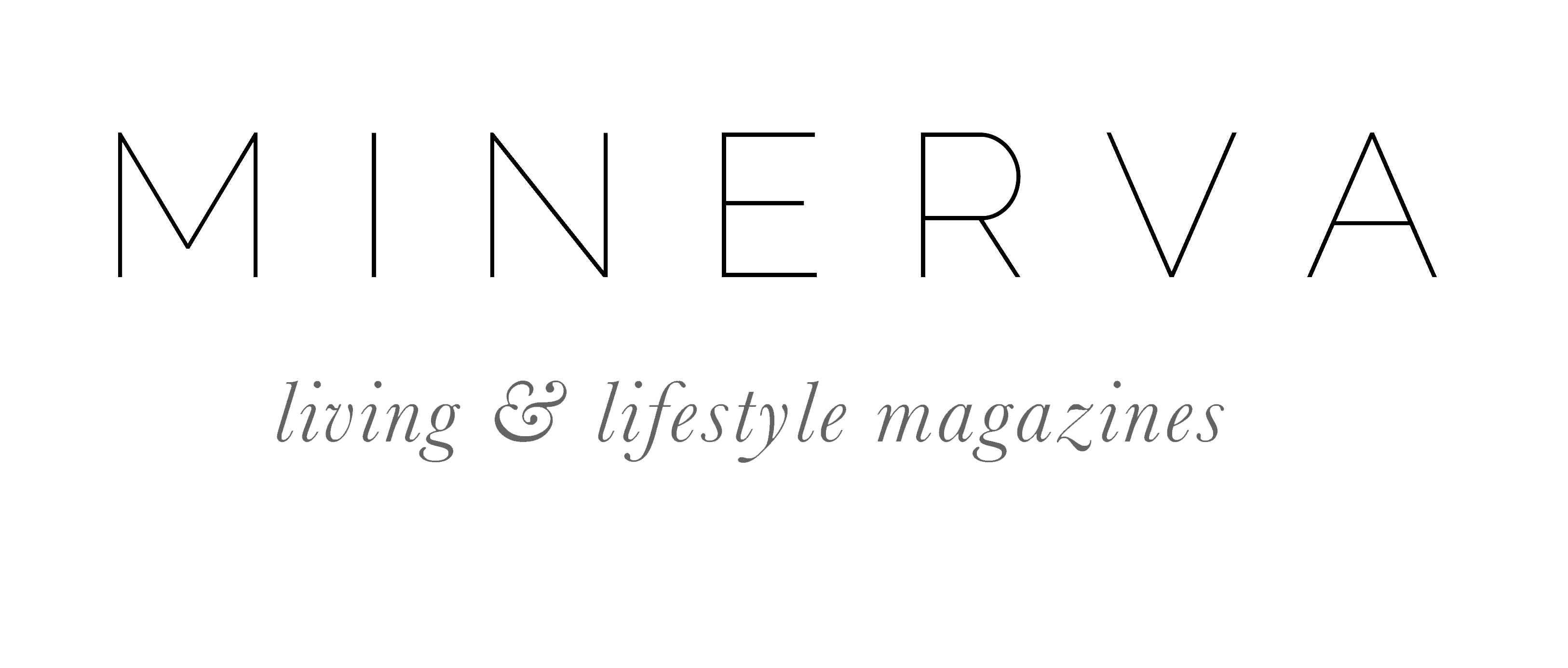HEALTH: Importance of Gut Health
Lisa & Alana Macfarlane, Founders of The Gut Stuff, on What Gut Health is, why it’s so Important and Their Top Tips to Live the Gut Life…
Please demystify what gut health is all about (it’s a hot topic thanks to its link to mental health) to help our readers understand it
So, as column inches, podcasts and research papers about “gut health” mushroom by the day, why is it suddenly becoming so popular? We’ve always had guts…. so why now?
Firstly, when gut health is talked about, what is really being discussed is the “microbiome,” an entire ecosystem of microorganisms, such as bacteria, yeast and fungi, which live in, around and on us – the majority taking up residence in your gut – your large intestine to be precise.
Think of your gut as a tropical jungle, home to lots of different species living and working in harmony, which – just like an actual jungle, will occasionally find itself completely out of balance, and this is where you might experience digestive symptoms or other bodily processes.
The reason it’s becoming so prevalent now is because we have the technology to work out what these guys do and how they interact, so a whole new world is emerging.
Couple that with how we live in the Western world, neglecting our gut bacteria by upping the amount of ultra-processed foods that are filled with additives and emulsifiers, which wreak havoc on our garden of microbes. Western medicine plays its part as well, and whilst antibiotics are necessary and have saved many lives, they are like a nuclear bomb on our precious gut microbiota. Antibiotics may take out the bad guys causing the issues – but they wipe out the good guys too.
Not only this, but we’ve also created a very sterile environment with our hand rubs, bleaches and in not allowing our children to play in the mud; which in the process kills off some good bacteria we actually need. The same can be said of us adults who tend to live much more sedentary lifestyles, spend too much time in our sterile homes and generally don’t get outside enough.
Lastly, we now have the technology to study the DNA of these little guys instead of growing them in labs, which is why we are making so many advances in getting to know them better.
There’s also a demand in interest from the public as now up to 40% of us are having a digestive issue at any one time, and this number is on the rise, ranging from bloating and excessive wind to crippling pain. But even if you don’t have digestive issues, looking after your gut is still important as its linked to so many different things including auto immune conditions, mental health and even Parkinson’s, with more and more research and links coming out by the day.
Why and how gut health is so important, and why do we need to bring it to the masses?
The Gut Stuff exists to empower gut health in everyone, because every single person, from every background, deserves the physical and mental benefits that come with a healthy gut. Gut health is the next frontier in medical science and one that we know impacts a broad array of the physical and mental issues people face, and everyone deserves the right to know about it.
For too long wellbeing and wellness has been seen as a luxury, associated with expensive food products and pricey gym memberships, which doesn’t’ challenge that perception. The reality is that there isn’t a one-size-fits-all approach to wellness, or magic bullet for gut health – but the know-how and power to look after yourself doesn’t’ have to be inaccessible.
To get a little ‘hard hitting’ on the matter; over the past 50 years, our diets which (generally) have been both low in the key nutrients found in fruit and vegetables, and high in salt and fats, which has contributed to our poor health and nutrition.
Globally, 11 million deaths annually are attributable to dietary factors, placing poor diet ahead of any other risk factor for death in the world. Furthermore, lifestyle related diseases such as diabetes and heart disease cost the NHS around £16bn a year – and we’re spending more on treating these conditions than we spend on either the police force or the fire brigade.
On a positive note: Despite nutrition being complex to understand because it’s so personal to all of us, there are still plenty of simple swaps and easy lifestyle changes which can work for everyone. And because we believe that everyone deserves the education and tools to make smarter decisions when it comes to health, we have worked with numerous leading experts in their fields to share these with you today – plenty more of which can be found via thegutstuff.com

We’ve shared our five favourite tips to help improve your gut health below:
1. Start a food diary
This is NOT a food diary for calorie counting but to monitor what you’re eating, how you are feeling (mentally and physically), your poos (yes, really!!) and how much you are moving to help you “tune in” to your body and to spot patterns.
We all live such fast-past lives, when was the last time your asked yourself ‘how am I today’ – understanding and listening to your body is a big part of understanding your gut and often we don’t listen to it until there’s something wrong or you’re not getting along. You’ll be surprised at how much you notice.
2. Chew, chew and chew again
Again, this sounds pretty simple, but sometimes it’s not about WHAT you eat, but HOW you eat. The process starts before we even put the food in our mouths and the digestion that occurs in your mouth is two-fold. First, the action of chewing physically breaks down your food into small pieces and second, enzymes in your saliva help break down your food even further. Try to chew each mouthful 20-30 times before swallowing and try to sit down and take your time over meals.
3. Get More Fibre!
Fibre is the unsung hero of nutrition and 9/10 of us aren’t getting enough of it. We’re supposed to be getting around 30g per day – so you may be relieved to know that it’s not all prune juice and cereals at the source! To put 30g into context, one apple is 4g – so it is a high number to hit, but luckily nature has packaged both soluble and insoluble fibres into plenty of plant-based foods – think fruit, vegetables, nuts and pulses. When it comes to what you should eat, as much variety as possible is key as different fruits and veggies have different benefits and feed different bacteria.
Fibre is so important because it bulks out and softens your stool by retaining water, which supports gut transit time and prevents constipation. Certain types of fibre can be fermented by beneficial gut bacteria (food for the bacteria basically!), which produce short-chain fatty acids, which are a source of energy and also slow down the breakdown of sugars found in carbohydrates, which helps stabalise your energy levels.
Fibre also promotes an environment favourable to beneficial gut bacteria (and we know we need to keep them happy) and more seriously, a diet high in fibre can reduce the risk of developing high cholesterol, heart disease, diabetes, and bowel cancer. So, it has so many benefits beyond helping you “go”!
4. Know your Prebiotics from your Probiotics – and get them in your diet!
Knowing your prebiotics from your probiotics can be confusing, as their names are so similar – but they are actually very different things. You need a good mix of both to keep your gut happy.
A probiotic is a live microorganism that, when eaten/drunk in adequate amounts, confer a health benefit on the host (you!). Probiotics can be in food form or in supplement form but not all probiotics are created equal – different strains have different effects, and some might have no effect at all, it all depends on the individual. Science is still learning exactly how different strains work so watch this space. Foods containing probiotics include: live yogurt, kimchi, sauerkraut, kefir, miso and kombucha. Try getting a mix of different types across the course of your week (we like to experiment and make our own sauerkraut as its cheap and super easy).
Prebiotics are a specific type of fibre and are the food for the good bacteria. Great sources of prebiotic food include: onion, garlic, leaks, chicory, bananas (the un-ripened green ones that nobody wants), asparagus, artichokes, olives, plums, apples, and in grains like bran and in nuts like almonds.
5. Variety is the spice of life – get plenty in your diet!
You have trillions of bacteria (over a thousand different species!) in your gut and they all thrive on different foods, so variety really is key to making sure you keep them all happy.
We all tend to reach for the same fruit and veg in the supermarket as we know what to do with them, but the recommendation is now to aim for 30 different types of plant-based fruit and veg a week in your diet – this can includes nuts and seeds too so that takes off some pressure!
Nuts and seeds are amazing sprinkled over smoothies, salads and added to stir fries, which are a great way to use up all of your leftover veggies in the fridge.
Above all, try to see the fun in getting more fruit and vegetables in your diet by switching your mindset to how much you are adding, as opposed to feeling like you’re taking things away.

